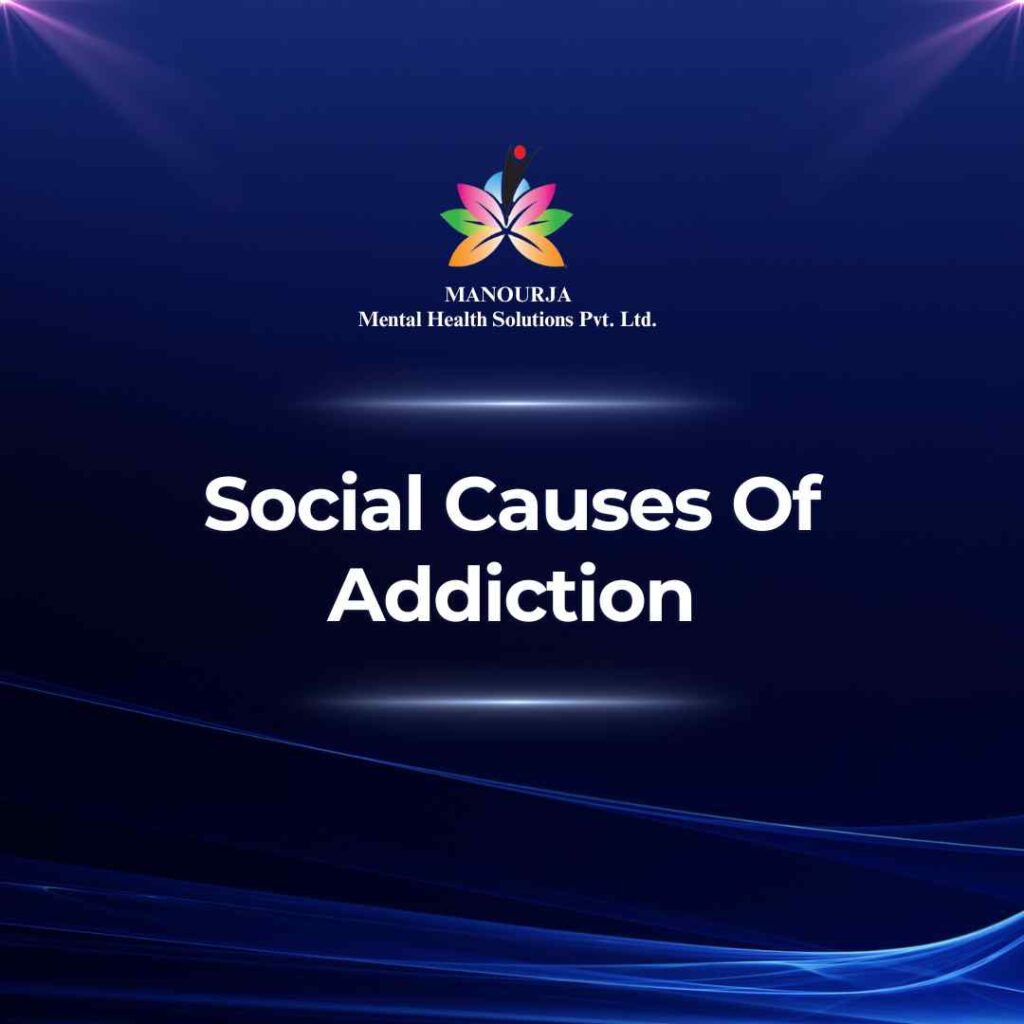Social Causes of Addiction

Addiction is a complex interplay of various factors, and social influences play a significant role in shaping behaviors and choices related to substance use or addictive activities. Understanding the social causes of addiction is crucial for developing targeted interventions and support.
Here are key social causes of addiction:
- Social Pressure Peer pressure and the desire to fit in can lead individuals to experiment with substances or adopt addictive behaviors, especially during adolescence and young adulthood.
- Family Dynamics Dysfunctional family environments, with a history of addiction, neglect, or lack of emotional support, can contribute to the development of addictive behaviors as a coping mechanism.
- Acceptance of Substance Use Societal or cultural norms that tolerate or even glorify substance use can influence individuals to engage in addictive behaviors as a way to conform.
- Availability and Accessibility The easy availability of substances or engagement in addictive activities within the social environment can increase the likelihood of initiation and continued use.
- Financial Stress Economic instability, poverty, or financial stress can lead individuals to adopt addictive behaviors as a way to cope with the challenges of their socioeconomic situation.
- Feeling Disconnected: A sense of social alienation or feeling disconnected from others may drive individuals to seek solace in substances or addictive behaviors.
- Media Portrayals: Media depictions of substance use or addictive behaviors can shape perceptions and normalize these behaviors, influencing individuals to emulate what they see.
- High-Stress Work Environments: High-stress workplaces or environments that promote substance use as a means of coping can contribute to the development of addictive habits.
- Performance Expectations: Expectations to excel socially or professionally may lead individuals to use substances as performance enhancers, potentially developing into addictive behaviors.
- Social Bonding: Engaging in substance use or addictive activities with peers may be seen as a way to bond socially, leading to increased acceptance within certain social circles.
- Facing Discrimination: Individuals facing stigma or discrimination due to factors such as race, gender, or sexual orientation may turn to substances to cope with the emotional toll.
- Isolation and Loneliness: Lack of social support or feelings of isolation and loneliness can drive individuals to seek comfort in substances or addictive behaviors.
- Peer Influence in Schools: Peer influence within educational settings can impact substance use patterns, with individuals adopting addictive behaviors to align with their peers.
- Community Acceptance: The acceptance of substance use or certain addictive behaviors within a community can influence individuals to engage in similar practices.
Understanding the social causes of addiction emphasizes the importance of addressing not only individual factors but also the broader social context. Prevention and intervention efforts should consider the social dynamics that contribute to the initiation and perpetuation of addictive behaviors.
At MANOURJA, we believe in the transformative power of counseling. Our experienced therapists offer a safe and supportive space where you can explore your thoughts, emotions, and challenges. Through personalized counselling sessions, we’ll work together to develop coping strategies, build resilience, and achieve lasting positive change. Discover the path to a healthier, happier you with MANOURJA counselling services.
MANOURJA Rehabilitation Services
At MANOURJA, we’re dedicated to helping you in rebuild your life, after difficult times. Our rehabilitation services focus on understanding what you need to move forward, whether you’re recovering from addiction, trauma, or any psychological – social challenges. We create personalized plans, that are all about helping you, regain your strength and find hope again. With a caring team by your side, you’ll have the support to make real progress and take steps toward a brighter, healthier future
